Steve Rosenberg is the Chief of Surgery at the National Cancer Institute, a position he has held continuously for the past 47 years. Steve is a pioneer in the field of immunotherapies for cancer and a recipient of nearly every major award in science. In this episode, Steve discusses his inspiration for devoting his career to cancer research and describes his keen observation of two cases of spontaneous cancer remission, driving him to learn how to harness the immune system to treat cancer. Steve’s personal story essentially serves as a roadmap for the field of immunotherapy, from the very non-specific therapies such as interleukin-2, the discovery of tumor-infiltrating lymphocytes, checkpoint inhibitors, CAR T-cells, and adoptive cell therapy. Perhaps most importantly, Steve expresses his optimism for what lies ahead, especially in the face of some of the more recent discoveries with respect to tumor antigenicity. Finally, Steve discusses the human side of cancer which helps him to never lose sight of why he chose to become a physician.
Subscribe on: APPLE PODCASTS | RSS | GOOGLE | OVERCAST | STITCHER
We discuss:
- Steve’s childhood and inspiration to become a physician and medical researcher [3:15];
- Patients that influenced Steve’s thinking about cancer and altered the course of his career [13:15];
- The discovery of antigen presentation, Steve’s first job, and why he knew he wanted to study cancer [19:30];
- Cancer treatment in the early 1970’s and Steve’s intuition to utilize lymphocytes [26:45];
- Cancer cells vs. non-cancer cells, and why metastatic cancer is so deadly [31:45];
- The problem with chemotherapy and promise of immunotherapy [38:30];
- How the immune system works and why it seems to allow cancer to proliferate [43:15];
- Steve discovers how to use interleukin-2 to mediate cancer regression [52:00];
- The immunogenic nature of certain cancers and the role of mutations in cancer [1:03:45];
- The improbable story of how CAR T cell therapy was developed [1:16:30];
- The discovery of tumor infiltrating lymphocytes (TIL) and engineering of T cells to recognize specific antigens [1:28:00];
- Steve’s experience treating President Ronald Reagan’s colon cancer [1:36:00];
- Why Steve has turned down many tempting job offers to focus on his research at the National Cancer Institute [1:41:00];
- The role of checkpoint inhibitors in cancer therapy and the promise of adoptive cell therapy [1:43:00];
- Optimism for using immunotherapy to cure all cancers [1:48:00];
- The human side of cancer and the important lessons Peter learned from working with Steve [1:52:15];
- More
Steve’s childhood and inspiration to become a physician and medical researcher [3:15]
- Up until age 5 or 6 Steve wanted to be a cowboy. He and his older brother would talk about going out west, riding horses, and doing exciting things
- At age 5 or 6 at the end of the Second World War he remembers clearly the tragedies of the Holocaust
- This made a huge impression on him how evil people could be towards one another.
- Around that time, he developed an almost spiritual desire to become a doctor, to do research and make progress in helping people, in alleviating suffering rather than causing suffering
- Inspiration to become a doctor developed in response to the horrors of that time
- His commitment to research aims to alleviate suffering in the future
- Steve’s education [6:10]
- Accepted to Johns Hopkins, the very best medical school for a combined bachelor’s MD degree, a 6-year program
- This was in the late fifties and early sixties
- It was 3 years of college and 3 years of medical school
- Accepted to Johns Hopkins, the very best medical school for a combined bachelor’s MD degree, a 6-year program
- At Hopkins there were brilliant people around, and Steve recounts “I think is probably one of the single most important components of a good education…being surrounded by people who know a lot more than you, can inspire you”
- After finishing his MD Steve wanted further education
“But I knew from the very beginning that I wasn’t just going to try to practice today’s science, practice today’s medicine, but rather try to create the medicine of tomorrow and that stuck with me for these last 60 or 70 years or so.” – Steve Rosenberg
- He went on to get a Ph.D. in biophysics at Harvard
- He wanted to be able to grasp any area of science and use it to answer questions and thought maybe differential equations would be helpful
- Ended up doing a lot a math in graduate school
- For 2 years he did nothing but study, take classes, and learn
- The last 2 years of his Ph.D. was focused on research, studying cell membranes, physical chemistry and protein chemistry
- He wanted a good enough broad background in the sciences so if he encountered a problem he could get a good book, read some papers, and understand it.
“I never wanted to be intimidated by what I did not know.” —Steve Rosenberg
- High school biology and college classes inspired his interest in cancer
- Timing of his Ph.D. and residency [10:00]
- After medical school began his surgical residency at the Peter Bent Brigham Hospital
- Next he took four years off to get a Ph.D. in biophysics at Harvard
- It was a year of internship, four years off to get a Ph.D., then back to the residency
- Then came down to the NIH for several years to join the immunology branch in 1974 (during the Vietnam War)
- It was unusual for someone to leave their internship to go into a Ph.D. program at that time
“I was just not satisfied after medical school, the college of medical school that I really knew enough to do creditable, meaningful, impactful, research.” – Steven Rosenberg
- Peter asks if Franny Moore the most significant figure in his life at that point in time as a mentor?
- Steve recounts “Franny Moore was the chief of surgery and an incredibly smart person,Franny stood out in that discussing a problem or patient it wouldn’t be at all surprising for him to come up with an idea or a perspective on a problem that most people had not considered. ”
- He got support to leave his residency to get a Ph.D.
- He had a few extra meetings, but Franny was patient because Steve came back for a year then went to the NIH as part of the Vietnam draft obligation
- Steve set a record at Brigham for taking 11 years from the time he started his internship to the time he finished the residency
- This would have been old for a chief resident at the time
Patients that influenced Steve’s thinking about cancer and altered the course of his career [13:15]
The Transformed Cell
- Steve made up for his late age by progressing quickly and writing what Peter describes as “one of the best books about science” in 1992 with John Barry, The Transformed Cell
“I may have the record for most times reading it. I may also possess the record for most copies owned, which I know you got a kick out of that.” – Peter Attia
In 1968, Steve met two patients in the ER that altered the course of his career…
- Steve was a junior resident at the West Roxbury VA Hospital
- A 68-year-old fellow who came in complaining of right upper quadrant pain
- It looked like a typical gallbladder attack, and Steve was excited because he might be able to perform one of his first operations
- His chart contained a remarkable story
- 11 or 12 years earlier, that patient had been seen at the West Roxbury VA Hospital
- He had gastric cancer (a stomach cancer) and underwent a laparotomy
- The surgeon at the time noted a tumor encompassing about three-quarters of the stomach; there were multiple liver metastasis deposits that were biopsied and shown to be the gastric cancer that had spread, multiple enlarged lymph nodes
- Part of the stomach was removed and the rest of the disease was left in place
- The patient recovered and about a week later, went home
- This was now 12 years later; the patient has lived 10-11 years normally after this
- Steve took part in removing his gallbladder and noticed his belly was completely clean of cancer
“It was a cancer that had spontaneously disappeared over time in the absence of any therapy. One of the rarest events in medicine, and that is to have the spontaneous regression of cancer without any treatments being given. ” – Steven Rosenberg
- Steve wondered whether or not this patient who had somehow cured his own cancer could be somehow taken advantage of to treat other patients
-
- There just so happened to be another patient in the hospital with a gastric cancer, a veteran who also had the same blood type
- Steve called up the head of the surgery department, Brownie Wheeler, and said, “Hey, I want to take a blood transfusion from this patient who spontaneously was cured and give it to this other patient.”
{end of show notes preview}

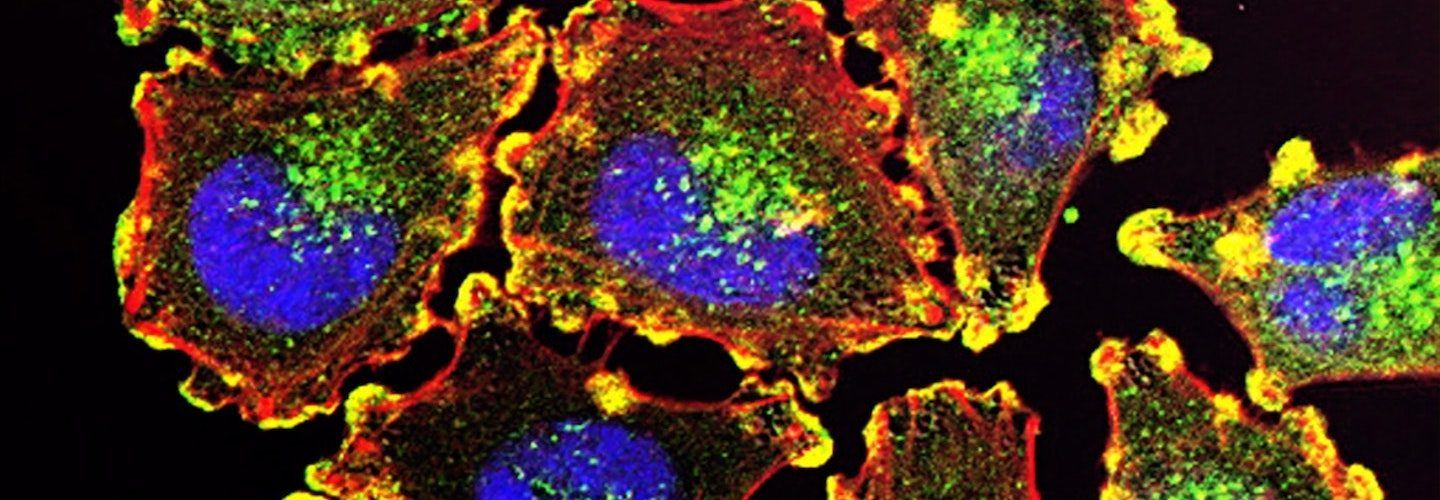
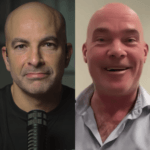
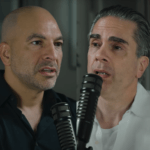
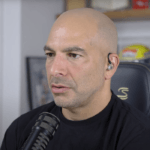
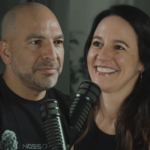
Excellent episode of major events in medicine and cancer.
There two missed opportunities:
One how to explain, other than genetics, his mental sharpness. Does he exercise or have any nutritional advice?
He obviously has a similar career and age to Dr. Fauci. It would have been interesting to hear comments on his parallel work and interaction.
great guest, WOW!